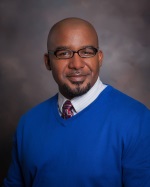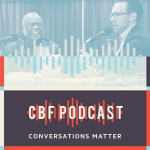
By Terrell Carter
The Adventures of Huckleberry Finn chronicles the adventures of two boys, Huckleberry Finn and Tom Sawyer, and a runaway slave named Jim, and their adventures along the Mississippi River during the late 19th Century.
In the story, Huck has been adopted by two older women and they set out to “civilize” him and save his soul. Huck dreams of adventure and love. Jim, the slave, dreams of equality, freedom, and opportunity. Although they are worlds apart, the two have a common hope: to be free of others’ expectations of them.
As they seek physical and psychological freedom, they are faced with multiple questions. To me, the most interesting question is, “Do we have to accept the future that someone else has planned for you and others?” In a sense, Acts 10 deals with this type of questions, as well. In Acts 10, the central characters are forced to address the idea of who is “clean/unclean” or “other” and do we have to interact with them in a particular way based on tradition.
In Acts 10, we are introduced to Cornelius, a Gentile official within the oppressive Roman army. Cornelius wasn’t necessarily a bad man. He was a “God-fearer,” and so were the people in his household. Although there were multiple good things about him, in Jewish eyes, he just wasn’t good enough because he wasn’t Jewish. He was “other.”
Cornelius is visited by an angel of God who tells him that God has recognized his heart and sacrifice. The angel then directs Cornelius to send men to Joppa to find a man named Simon Peter. He isn’t told why. He’s just told to do it. And he complies.
The next day, Simon Peter, one of Jesus’ disciples, is in Joppa sitting on a roof trying to figure out what he wants for lunch. He has a vision in which he sees the heavens open and a big sheet carrying all types of animals descends from the sky. A voice from heaven tells Peter to eat these animals.
For a devout Jew like Peter, this is a no-no. Throughout his life, he was taught to read the right books, go to the right places, and not to eat unclean wrong food like the kind on the sheet. To Peter, these animals are “other.” Before it’s all done, the voice tells Peter multiple times, “What God has made clean, do not call it “other.”
This voice tells Peter that Gentiles would come looking for him and he should go with them. On cue, Cornelius’ men arrive looking for Peter and he goes with them. This is a significant because Jews didn’t fraternize with Gentiles, and vice versa. But, here Peter was, doing the unthinkable, going to eat with a Gentile.
At that meal, Peter delivers a gospel message and Cornelius and his family are transformed spiritually. The Holy Spirit fell upon them and they even spoke in tongues. These “other” people were experiencing the same thing that Peter and the disciples experienced. They are now spiritual kin.
People who, at the beginning of the day, were worlds apart, are now spiritual brothers and sisters. Those who, like Jim and Huck Finn, saw the world through vastly different eyes and experiences, were now seeing life through the same Holy Spirit. It was all because of the truth of the gospel. That Christ died to reconcile all people to our common Creator. That is at the heart of the gospel message Peter preached.
The question remains for the rest of us who do we consider to be “other” and how can we share God’s everlasting love with them? Who is the Spirit sending you to in order to welcome them into God’s body? Who is God sending you to with the gospel message, so they can know that God loves them, and wants to invite them to the holy table of fellowship? Will we be found faithfully welcoming the clean and unclean, the familiar and the “other” to God’s table because there is room for us all?
Terrell Carter, D.Min., is assistant professor and director of contextualized learning at Central Seminary in Shawnee, Kan., and pastor of Webster Groves Baptist Church in Webster Groves, Mo.
Note: The views expressed here in columns and commentaries are solely those of the authors.
Interested in writing for CBF at Patheos? Submit your column idea to CBF Communications Director Aaron Weaver at [email protected].









